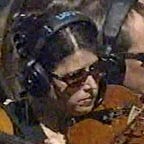From the (Outgoing) SCSM President (Winter 2022–2023)
As I reflect on the year 2022, one word comes to mind: reunion.
Merriam-Webster’s defines “reunion” as “a reuniting of persons after separation.” Perhaps, after months of separation due to COVID-19, you have experienced reunions with family, friends, or colleagues. Traditions were resumed. Stories were told. Conversations consisted of “catching up” and “picking up” where you left off.
2022 was also a year of reunion for the Society for Christian Scholarship in Music. After meeting online in 2021, many of us reunited in person on a beautiful weekend in early March at Mercer University for the 20th Annual Meeting of SCSM. The tradition continued! Colleagues traded stories of “how we survived.” Friends from SCSM meetings in the past, along with many new friends attending for the first time, joined in conversations. The Mercer Singers shared a concert of a cappella music — an experience that was particularly moving as many of us had not heard live choral music in some time.
Yet, at the appropriate moment, our conversations and music making paused for silence as we remembered those lost during the pandemic. Also, we felt sadness as international friends from Canada, the U.K., and other countries were not able to join us in person. Our reunion was not complete.
More recently, another SCSM reunion occurred, this time in New Orleans, Louisiana. At the Joint Annual Meeting of the American Musicological Society, the Society for Ethnomusicology, and the Society for Music Theory in November, the SCSM offered a late-night reception. Again, a tradition was resumed, colleagues were reunited, and friendships “picked up.” This reunion of music scholars from multiple disciplines and multiple generations was particularly special as it took place as part of a conference (AMS) where SCSM began over twenty-one years ago (as the Forum for Christian Scholarship in Music).
Over the Christmas season, my musings on “reunion” were brought into focus by a favorite Advent hymn: “O Come, O Come Emmanuel.” This Medieval Latin hymn of unknown origin found its way into an eighteenth-century Catholic hymnal printed in Cologne in 1710 — the Psalteriolum Cantionum Catholicarum. Verses from VENI EMMANUEL were translated by John Mason Neale (1818–1866) for use in Hymns Ancient & Modern (1861) and are now sung in Christian churches of many denominations around the world.
Although the most famous verses in English are from Neale, my attention was drawn to a more recent stanza translated from the Latin by Henry Sloane Coffin (1877–1954) for Hymns of the Kingdom of God (1916). Coffin’s lyrics (included in many hymnbooks along with verses from Neale) read:
O come, desire of nations, bind
All peoples in one heart and mind;
Bid envy, strife, and quarrels cease;
Fill the whole world with heaven’s peace.
This prayer to Emmanuel (God with us) emphasizes a unity of “one heart and mind” for people near and far. Its plea that “envy, strife, and quarrels cease” serves as a fitting prayer after 2022’s petty quarrels, political strife, and international war. Its final plea for the world to be filled with “heaven’s peace” echoes the petitionary logic of the Lord’s Prayer — that God’s peacable Kingdom may come and bring peace “on earth as it is in heaven.”
This sung interdenominational prayer reminds me of the emphasis on unity in the early Christian church, especially as it relates to music. As Calvin Stapert affirms, “Unity was an important matter to the early Christians, and … almost from the beginning music was an expression of, a metaphor for, and a means of unity” (A New Song for an Old World, 27). He quotes Ambrose of Milan, who points out that “A psalm joins those with differences, unites those at odds and reconciles those who have been offended, for who will not concede to him with whom one sings to God in one voice?” (Commentary on Psalm 1, 4).
As we held our reunion as a society at our 2023 Annual Meeting at Duke University on March 2–4, I experienced a measure of such unity. Although all participants were not in person, and SCSM exists as “an ecumenical association, reflecting the world-wide diversity of Christian traditions, and seeking to learn from scholars outside those traditions” — not as a church — our gathering in North Carolina was an expression of our unity as “an association of scholars exploring the intersections of Christian faith and musical scholarship.” We came together as a variety of scholars, representing a variety of disciplines: musicology, congregational singing/hymnology, ethics, ethnomusicology, popular music studies, liturgical studies, religious studies, theology, and worship studies, among others. We will come together representing many nations: Canada, China, Israel, Korea, Nigeria, the U.K, the U.S.A., and perhaps more. We came together for a great reunion.
In 2023 and beyond, may our thinking, writing, speaking, and making of music point towards a more profound unity as we continue to explore the intersections of Christian faith and musical scholarship. Grateful for seeing many of you in North Carolina!
With gratitude,
Joshua A. Waggener, Ph.D.
SCSM President, 2021–2023
Joshua Waggener is Professor of Church Music and Worship at Southwestern Baptist Theological Seminary in Fort Worth, TX.
